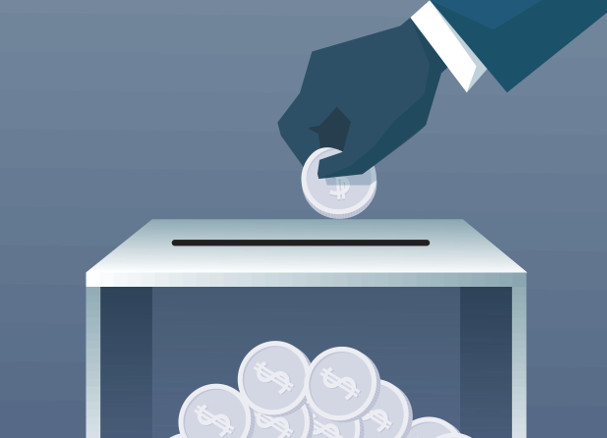
Credit: Ievgen Chepil / Alamy Stock Photo
Beneficiaries by ballot
Should research funding be allocated through voting?
3 August 2017
COMMENT

Ievgen Chepil / Alamy Stock Photo
Researchers spend an incredible amount of time applying for funding in a fiercely competitive environment. My colleagues and I have previously estimated that Australian researchers collectively spend 614 years applying for grants from the major medical research funding agency in the country every year. The onerous process of writing a grant is something most researchers can relate to.
Instead of writing this grant, I should walk the whole country and get a penny from each person. Same amount of money, but less hassle.
— Terry McGlynn (@hormiga) December 10, 2016
Scientist day job: Writing grants
— Bryan William Jones (@BWJones) May 1, 2017
Scientist hobby: Doing actual science
What if there was another way to decide who receives research funding? What if we tried a more democratic process based on the idea that the research community knows who the best researchers are? Rather than current systems, which mostly rely on a small number of established researchers poring over hundreds of grant proposals, we could use the wisdom of the crowd to select the ideas most worthy of funding.
To test this approach, my colleagues and I asked Australian researchers to name the 10 researchers they thought most deserved hypothetical funding.
Many researchers thought the idea was flawed because it would unfairly penalise early-career researchers who might be talented but not known widely enough to get a large number of votes. But this applies to any system that tries to make decisions about researchers with limited experience, and exemplifies why early-career researchers need to be supported by separate and specific schemes. A voting system would work best for established researchers.
Lobbying for votes was also a concern. If researchers spent months trying to attract votes, study participants pointed out, it would defeat the point of using a voting system to save time. For lobbying to reach the greatest number of peers, it would need to be done in the open. This would allow people to question exaggerated claims and might also increase the public’s engagement with research.
Researchers spend their careers testing ideas. Some of the most memorable research breakthroughs have been counter-intuitive, so I was surprised that many researchers were unwilling to test an alternative funding model, calling it a “waste of time” or saying “this will simply not work”.
My team is not the first to propose a speedier alternative to funding researchers. In 2014, a group from Indiana University proposed a funding model where eligible researchers were given US$100,000, but forced to give away half to other researchers. If the idea worked as planned, the most esteemed researchers would get the most money and would also have the most influence on what other researchers were funded. And it would all happen without any application forms. While the idea received some positive feedback, many felt it was unworkable.
Before we started our study, the reaction from colleagues was often hostile. I floated the idea with two senior researchers who both said it was a terrible idea. “People will just vote for their friends,” one said. But when I asked them if they would vote for their friends they both said they certainly would not. Researchers trust themselves but not the wider community.
Giving money to colleagues might feel like nepotism, but an online voting system would identify who voted for who. A central agency could use this information to identify unusual voting patterns and impose penalties for institutions that try to fix the system.
Democracy may be a less than ideal way to fund researchers, but without trying other forms we may be wasting valuable scientific time on a broken system. As Winston Churchill once said, “Democracy is the worst form of government except for all those other forms that have been tried from time to time.”
Adrian Barnett is a statistician who works in meta-research at the Queensland University of Technology, Brisbane. He tweets @aidybarnett
